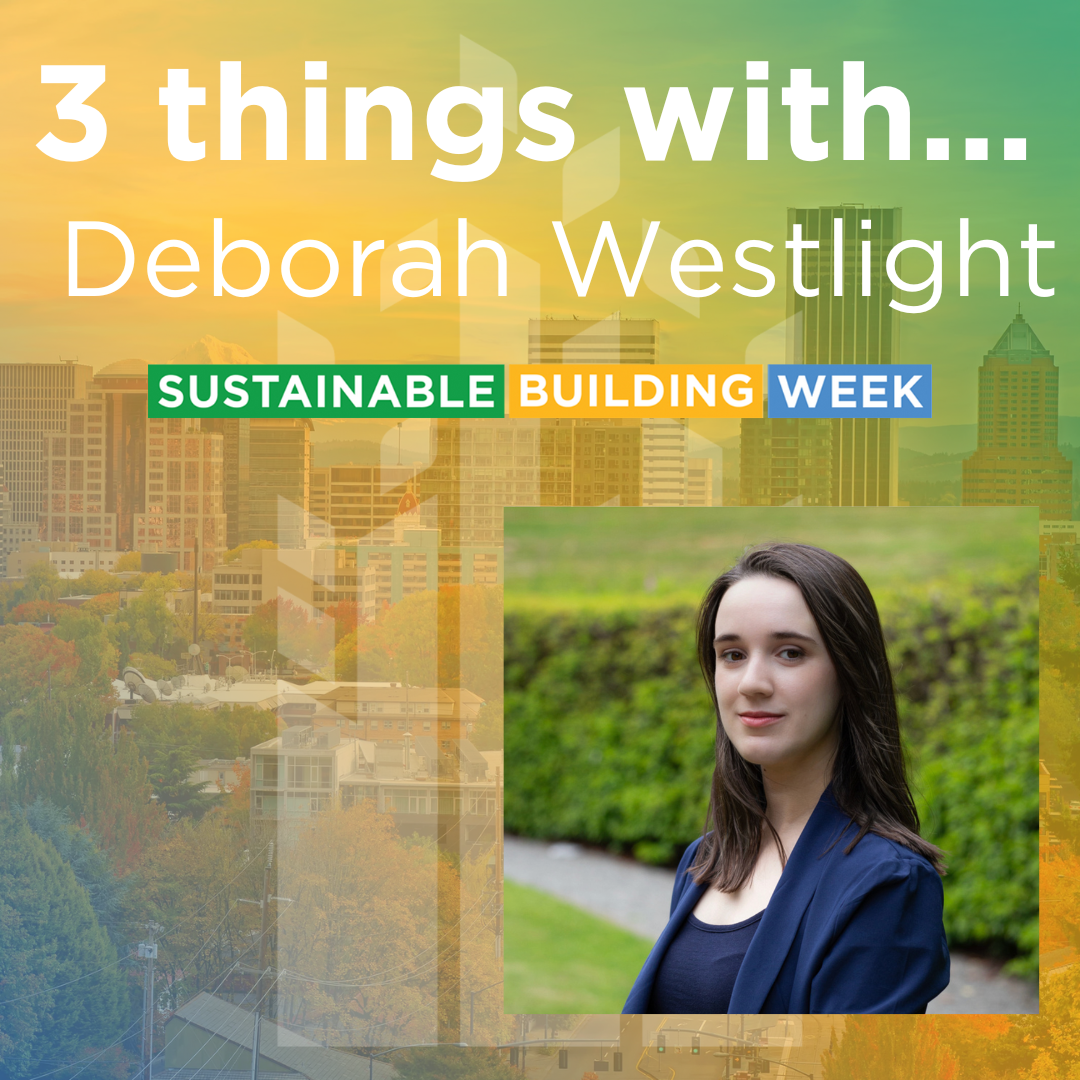3 Things with … Deborah Westlight

3 Things with … Deborah Westlight
Portland has an amazing sustainability community and we want to highlight the amazing people and work that shapes our unique city. As we get ready for this year’s Sustainable Building Week, we’re sharing their answers to questions we posed.
Meet Deborah Westlight. She’s Operations Manager for the Oregon Clean Power Cooperative, a state-wide organization that develops mid-sized solar arrays using a cooperative funding model. And… she’s also one of our amazing volunteers who are working hard to make this year’s Sustainable Building Week better than ever.
Take it away, Deborah!
What does sustainable mean to you?
Sustainable means a practice that can be maintained indefinitely without draining resources or causing such harm that it would prevent further iterations. Growing up in the 2000s, I was encouraged to think about what that means environmentally on a systems level, but sustainability also plays into other parts of life; like prepping meals that are simple enough that you actually cook them, rather than eating takeout all week.
Name a Portland (or Oregon) project or collaboration that has inspired you, and tell us why you are inspired by it.Obon Shokudo and Jorinji Miso. Obon is one of my favorite restaurants in Portland, vegan or otherwise. I love their commitment to fresh, responsibly sourced ingredients. I appreciate Obon’s partnership with Jorinji, because it allows them to serve dishes that aren’t available anywhere else in Portland, with high-quality live culture ingredients. I especially like the fact that Obon serves Jorinji’s amazake (a fermented rice smoothie), since it’s hard to get in the U.S. This is not sponsored content. I’m just a hopeless pickle enthusiast (my mom co-founded the Portland Fermentation Festival, I had no choice), and these folks deliver.
What can Portland (or Oregon) be doing better to be more sustainable?
I’m curious how the implementation of the Recycling Modernization Act (RMA) will affect sustainability in Portland. The RMA comes into full effect next year, and we are already starting to see some changes (Hello, battery recycling! Let’s reduce dumpster fires!), but changes of this scale are messy, and the recycling industry is a quagmire, and there are a lot of gaps in what materials can be effectively lifecycled. As the kinks in the RMA get worked out, I think that Portland can continue to innovate on the reuse and recycling fronts, and create new code to allow for a more circular local economy.
- Tags :
- Sustainable Building Week
Recent News
September 23, 2024
September 09, 2024
September 19, 2023
Stay in the Know!
© 2024 Sustainable Building Week. Website by Triple Play Studio


